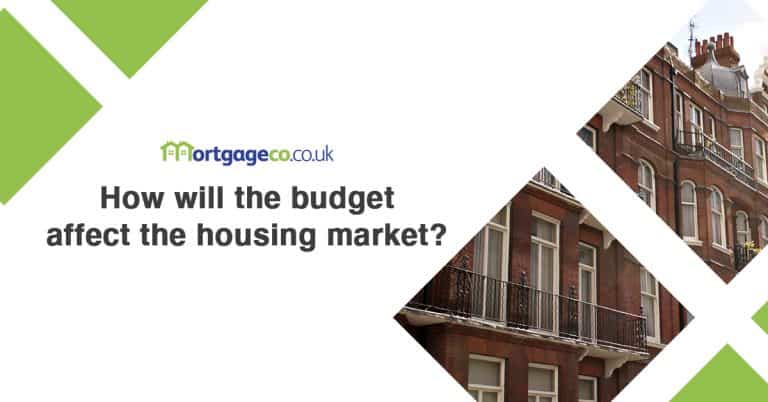How much deposit do you need for a mortgage? (Part 1)
Home » How much deposit do you need for a mortgage? (Part 1)
How much deposit do you need for a mortgage? (Part 1)
Mortgage deposits with Steven Hargreaves. [Podcast recorded in April 2024].
How much deposit do I need for a mortgage? What’s the average First Time Buyer deposit?
The average First Time Buyer deposit depends on your savings and other things. I’ve seen a big influx in the last few years of gifted deposit from parents or grandparents.
I would say that an average deposit over the last two years is probably about 10%. But that said, there isn’t really an average. If you’re buying a house at £200,000 and you’ve got a £10,000 deposit that’s 5%. You’ve got what you’ve got.
As far as lenders are concerned, they all insist on a deposit ordinarily, and the smallest until recently has been a 5% deposit. So if you were buying a house at £100,000 that would be £5,000.
As I always explain to First Time Buyers, the bigger the deposit, the less risk to the lender – so the better the deal. If you’re looking at a 95% mortgage, it will have a higher rate than a 90% mortgage. In turn, that would have a higher rate than an 85% mortgage. So the size of your deposit affects the rate you’re going to get.
Let’s confirm we are recording this episode in April 2024 – because of course market trends change, don’t they?
Absolutely, and within the last couple of weeks a lender has come to the market with a minimum deposit of £5,000. So even if you were buying a house at £500,000 you would only have to put a £5000 deposit down – assuming you could afford it on your income.
The interest rate is higher, and the qualification for getting that mortgage is a lot higher – they will only look at people with a high credit score. But lenders are quite innovative in what they’re doing to stimulate the market.
What does LTV mean?
LTV is Loan to Value – and that’s how much you’re borrowing as a percentage of the purchase price.
So if you were looking at buying a house at £100,000 and you were looking at borrowing 95%, the Loan to Value is 95% and you put in a 5% deposit. If you were looking at putting 10% down, the Loan to Value would be 90%.
With a 95% Loan to Value, the lender only has a 5% buffer in the property. If you were getting a 60% Loan to Value, you’ve put 40% in so the risk to the lender is significantly lower. In turn, that will give you a significantly cheaper interest rate.
What does a bigger house deposit mean for my Loan to Value?
A bigger deposit gets you cheaper interest rates, which in turn means cheaper mortgage payments.
That’s always been the case. The highest Loan to Value – 95% – comes at a higher interest rate. Years ago you used to be able to get 100% mortgages, and they were considerably higher because the risk was so great to the lender.
If, in years to come, you ever struggled with payments and they repossessed that house, they would often struggle to sell the property and recoup the mortgage. Therefore they put a load on that rate, making it much higher.
How much should I save for a deposit and how can I do it?
If you’re wanting to buy a house you want the biggest deposit you can possibly get. So going out on a Friday night and Saturday night goes out of the window. Instead of going out for that big expensive meal, you might wait until you’ve got your house and you’ve moved in.
The bigger the deposit, the better, because it’s not just the deposit you need. If you’re buying a £100,000 house we could get a 95% mortgage and you would need £5,000 – but you’re also going to need to pay for other things like legal fees.
And, as anybody will tell you, when you move into that house you’ll want to change a lot in the first six or nine months – whether it’s just paint, or wallpaper, or new carpets. You might need to go bigger and get a new kitchen or new bathroom.
So if you’re planning on buying a house you really want to be saving as much as you possibly can. If the house needs some work on it, you might end up reducing the deposit to keep some money back for redecoration. But at least you’ve got the option once you’ve got that cash in your bank or building society.
Can I get a mortgage with a 0% deposit? What’s the minimum deposit for a house?
Well I’ve now got to say the minimum is £5,000 because of that new deal. Before that it was a 5% deposit.
That said, there are certain schemes where you don’t even need as much as that. I’ve just arranged a client’s mortgage for a Right to Buy, where they’ve been renting a property from the council for many years. With Right to Buy they get quite a large discount from the council that they can use as a deposit.
So they haven’t actually put any of their own money into the deal. Strictly speaking, that was a 100% mortgage, but it was a specific scheme available if you’ve been rented through the council.
Speak To An Expert
Our team of experts are experienced in catering for a range of clients, needs and property types. With a vast array of qualifications and accreditation from the financial accreditation agency you can be confident of quality service and sound advice.
Can you buy a house with a 5% deposit? Can you get a mortgage with a 10% deposit?
You want as big a deposit as you possibly can, as a bigger deposit means a cheaper mortgage. The other thing to factor in is that even if you haven’t quite got all the deposit this afternoon, but you’re interested in a property, the average completion time is about 17 weeks at the moment for land registration.
So you might have the ability to save some more while the transaction is going through. Just something to bear in mind. That makes it more real – once you’ve had an offer accepted, nights out and holidays certainly disappear at that stage – it’s 100% about saving.
Will I need another deposit when moving house in the future?
No – but you can introduce money if you want, and again, the more money you put in yourself the cheaper the deal is. Ordinarily, though, you would use the ‘equity’ from the sale of your house as a deposit.
For argument’s sake, let’s say you bought a house ten years ago for £100,000 and you took a £90,000 mortgage. You might be selling that house now for £150,000, which means you might have as much as £75,000 equity – the difference between what you sold it for and your outstanding mortgage. You could use that £75,000 equity as your deposit against your new house.
Who do I pay my mortgage deposit to?
The solicitor. If you had your offer accepted this afternoon or tomorrow, you don’t need the deposit there and then. You need the deposit just prior to exchange of contracts, which is possibly up to 17 weeks down the line.
So if you haven’t quite got all the money saved up today, you could potentially save very hard in a short period of time until exchange of contracts, which is three or four months away.
Can my parents contribute towards my deposit?
Yes, your parents can contribute. If it’s a gift, it’s non-repayable and that’s absolutely fine. In the last few years I’ve seen a massive influx of gifted deposits from parents and grandparents, especially as property prices have increased.
Should I borrow money from my family for a bigger deposit?
This is a bit different, because if you’re borrowing money that means it’s repayable. The lender would see that as a loan. You would have to advise the solicitor and the lender, and they will factor those loan payments into how much you can borrow.
If it’s a gift, it’s not repayable. If it’s a loan, even from family, it’s repayable. The lender would need to know about that.
What else do we need to know about mortgage deposits?
It’s best to seek out a mortgage broker to tell you about the deals for a 95% or 90% mortgage. It might be that you think there’s such a big difference between a 95% mortgage and a 90% you’d prefer not to buy now and save a little bit more.
Or, you might think that the difference is not significant, and you’d rather go for the 95% deal. A broker will talk you through what you can afford, what deposit you will need and go through the other fees associated with purchasing property. That includes solicitors’ fees, and stamp duty in some cases – but not the majority – so there are other factors to consider beyond the deposit.
YOUR HOME MAY BE REPOSSESSED IF YOU DO NOT KEEP UP REPAYMENTS ON YOUR MORTGAGE.
Why MortgageCo?
- Raising The standards of financial advice
- Making financial advice accessible to all
- Trusted & stress-free financial advice
- Friendly, personable advisors
Podcast Interviews With Our Team
As Seen In
















